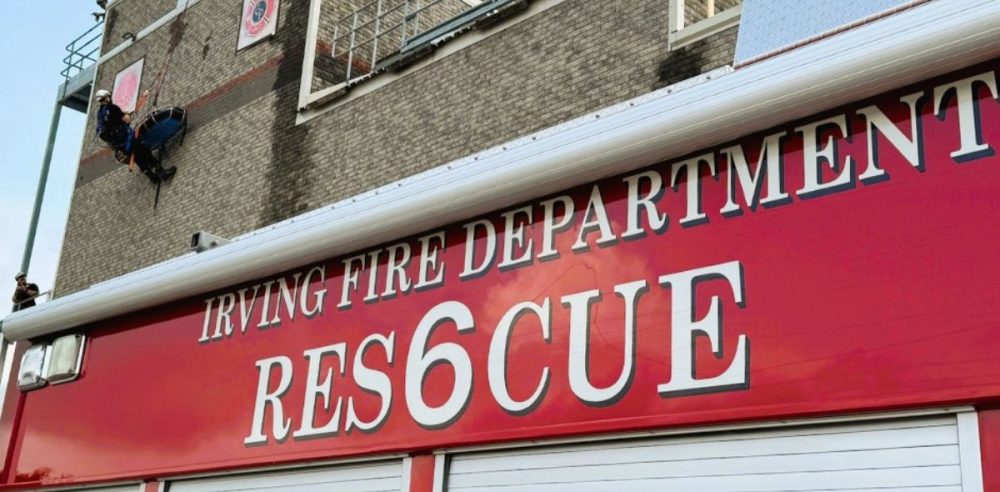Collective bargaining for firefighters in a major city in North Texas hinges on Tuesday’s vote.
Voters will either approve or deny Proposition A, a ballot measure that would open the door to collective bargaining in Irving’s fire department. City staff sent out an informational mailer late this summer that appeared to try to preempt many arguments made by the pro-union side.
“Since 2016, the Irving Fire Department has increased staff by 45 NEW FULLTIME EMPLOYEES [capitalization in original],” the mailer stated before itemizing almost $4 million in new personnel expenses and expansions.
“Since FY16-17, the City of Irving Department operational budget Fire has INCREASED [capitalization in original] 50%, or $22.1 million,” a budget section on the mailer reads prior to listing a series of places where the city is spending more.
“IRVING RESIDENTS ARE SAFE [capitalization in original],” the document states toward the end.
The mailer reassures residents that “Irving Fire Department has maintained a Class 1 Public Protection Classification (PPC) Rating since 2017 [and] Irving Fire Department became the first in the State of Texas to complete and be awarded Best Practices Recognition status by the Texas Fire Chiefs Association (TFCA) in 2014 and the first to re-certify in 2019.”
Then, it lists hundreds of fires and other catastrophes that the city staff said the department had handled effectively.
While this document could give the impression that unionization is unnecessary, some Irving firemen see it differently.
Irving Fire Fighters Board President Brian Becker made the collective bargaining case to The Dallas Express.
Becker started by explaining that what his organization wants is not so new.
“The Irving Professional Fire Fighters Association (IPFFA) affiliated as a labor organization with the International Association of Fire Fighters (IAFF) on July 28, 1971,” Becker said.
Moreover, he told DX there was bipartisan support for the law that makes collective bargaining ballot initiatives possible.
“Our initiative, Proposition A, asks Irving voters to adopt Texas Local Government Code Chapter 174, also known as Collective Bargaining. This law was adopted by the Texas legislature in 1993 and has been successfully implemented by several municipalities around the state. It’s a non-partisan Texas law that has been supported by Republicans, Democrats, and Independents,” Becker asserted.
Addressing the practical elements of collective bargaining, Becker said it would create “enhanced safety standards… [better] compensation and benefits… [and] improved working conditions.”
Becker noted this would include everything from better safety equipment, which he notes would benefit both firemen and the community, to opportunities to attract more talent to the department.
Becker also lists more abstract benefits.
In Becker’s view, collective bargaining would allow firemen a “voice in decision-making… professional development… [and] solidarity and unity.”
He concluded that collective bargaining would allow Irving’s fire department to “[achieve] a more safe, equitable, and productive work environment. This will enable us to serve the residents, visitors, and businesses of Irving with even greater dedication and effectiveness.”
Unionization efforts have swept through Texas in recent years.
Members of Frisco’s Fire Department attempted to pass a similar measure, Proposition B, in the spring of this year.
In a move similar to the typical dynamic between local Chambers of Commerce and collective bargaining efforts, the Frisco Chamber of Commerce opposed the effort. Ultimately, the measure was defeated.
The Dallas Express contacted the Irving Chamber of Commerce for their view of the issue. Chamber president Beth Bowman responded: “That is not a topic on which the Chamber has taken a position.”


